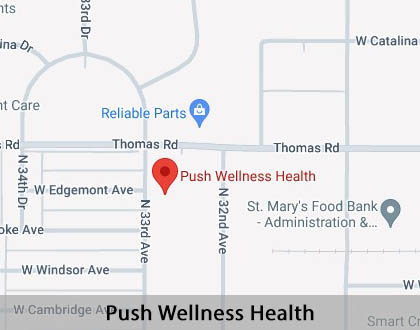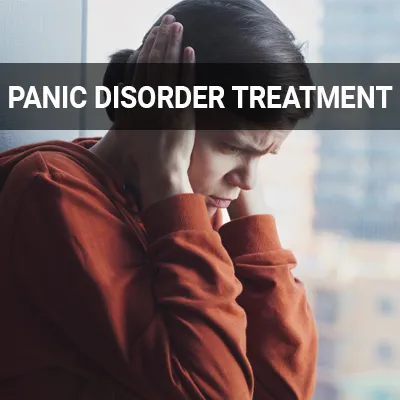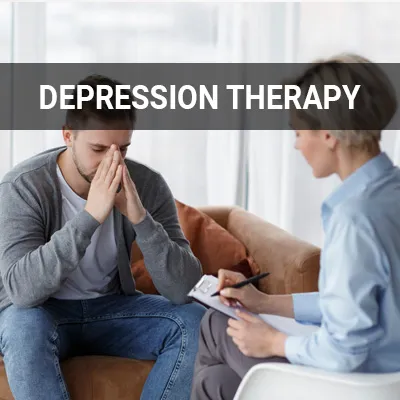Group Therapy Phoenix, AZ
Group therapy offers mental health support to a group of individuals all struggling with the same issue. Trained mental health workers help group members share their experiences, feelings, and ways of coping with common problems. These sessions offer much-needed support for people who might otherwise feel isolated by their difficulties. Our clinic provides services for children, adolescents, adults, and seniors. We have specialized clinicians experienced in working with each age group.
Group therapy is available at Push Wellness Health in Phoenix and the surrounding area. If you are struggling, you do not have to struggle alone. We can help. Call (480) 737-4658 for more information.
Intensive Outpatient Therapy
Push Wellness clinical staff provides behavioral health interventions to assist individuals in achieving personal goals through evidence-based, individualized, and group treatment services. We incorporate a variety of clinically appropriate treatment modalities while using a whole health, and direct wellness approach. We understand that some individuals transition to our outpatient program to continue treatment, while others decide to take their first step by starting directly in outpatient treatment. We offer comprehensive services that encompass intensive treatment, medication management, wellness training, ongoing maintenance support as well as skills and development training that are needed to create a more independent and sober lifestyle. At Push Wellness our team of clinicians, therapists, physicians, and staff will meet you where you are and welcome you as an individual as you begin your journey to recovery.
What is Group Therapy?
Group therapy can refer to several situations where one or more qualified therapists work with a small group of people. The typical group ranges in size from five to 15 individuals who receive help and support from the therapist and other group members. The facilitator is usually a mental health professional such as a psychologist or therapist with special training in this type of therapy.
The patients are typically outside each other's social, work, and family networks. In addition to receiving insight from the therapist, those who participate in group therapy can benefit from the knowledge and experience of other group members.
“The typical group ranges in size from five to 15 individuals who receive help and support from the therapist and other group members.”
Benefits of Group Therapy
There are many attractive benefits to group therapy. First, group therapy costs tend to be less than individual therapy. Next, group therapy provides a safe and confidential space for people to seek support from others struggling with similar issues. Also, group therapy allows people to network with other individuals facing similar challenges. Having his sense of community lets members know they are not alone in their struggles.
People from all walks of life with different problems and circumstances can benefit from group therapy. This type of therapy can be helpful for those dealing with psychological disorders such as anxiety, depression, and post-traumatic stress disorder. Group therapy may also be helpful to those who are grieving the loss of a loved one, struggling with weight problems, dealing with chronic pain, recovering from domestic violence, and those overcoming trauma or illness. Those battling a substance use disorder often find success overcoming it with group therapy.
“…group therapy allows people to network with other individuals facing similar challenges.”
The First Session
There are a number of resources for helping people to get started with group therapy. A regular doctor or individual therapist can be an excellent resource for referrals. We recommend finding a practitioner certified in group therapy. The American Group Psychotherapy Association has an excellent online tool for this purpose.
The length and number of group therapy sessions depend on a number of factors, including the issues explored and the goals of the group members. Some group therapy is short-term, while other types may be ongoing. For the most part, group therapy will meet weekly for about an hour or two.
“We recommend finding a practitioner certified in group therapy.”
Check out what others are saying about our therapy services on Yelp: Group Therapy in Phoenix, AZ
The Focus of Group Therapy
The group therapy facilitator aims to bring a group of people together who struggle with a common problem so that they may benefit from the knowledge of the therapist and the others in the group who are facing similar challenges. The therapist creates a safe space for members to share their troubles with the group. Out of this comes an exchange of support and knowledge that allows all members to ease troubling emotions and find new and better ways to navigate their difficulties.
Group therapy takes many forms. However, here are the five most common types:
- Cognitive behavioral. During these group sessions, the therapist leads members through exercises that help them identify negative thoughts and behavior patterns so they can change them. This type of group therapy tends to be short-term and focuses on changing specific negative thoughts and behaviors.
- Interpersonal process. Therapists for these groups use the psychodynamic approach to help members make positive changes. Psychodynamics is a branch of psychology that looks at how a person’s early life experiences and subconscious feelings contribute to their behaviors.
- Psychoeducational. These groups tend to focus on certain conditions such as substance abuse, eating disorders, phobias, or depression. The goal is to educate members on their shared condition and effective coping strategies.
- Skills development. These groups focus on improving the way members handle their mental health conditions. The group members work on building new skills and strengthing existing ones.
- Support. Support groups offer a community of help to individuals going through traumatic life events or experiences such as the loss of a loved one, domestic violence, or a traumatic accident.
“The therapist creates a safe space for members to share their troubles with the group. Out of this comes an exchange of support and knowledge that allows all members to ease troubling emotions and find new and better ways to navigate their difficulties.”
Questions Answered on This Page
Q. How is group therapy different from individual therapy?
Q. What are the benefits of group therapy?
Q. How do I access quality group therapy in my area?
Group Therapy and Everyday Life
Group therapy can make a dramatic difference in the lives of those who participate. Members build hope as they watch other members improve over time. They also get a sense of how other people have tackled the problems they are also facing. By watching others succeed, members can see what works and apply these solutions in their own lives. People can see their problems from another person's perspective and gain new insights. According to the American Psychological Association, decades of research and over 50 clinical trials have shown group therapy to be as helpful as individual therapy for conditions including depression, obesity, and social anxiety.
“By watching others succeed, members can see what works and apply these solutions in their own lives.”
Frequently Asked Questions
Q. Will the things I say in group therapy sessions be kept confidential?
A. Those who participate in group therapy make a commitment not to share any information outside the group. All of the other members are sharing personal information on their lives as well, and share your concern for confidentiality. It has been our experience that other members have a high degree of respect for the privacy of the other group members.
Q. Does insurance cover group therapy?
A. All insurance plans are different, but your plan will likely have some coverage. Mental health coverage is a part of most health insurance plans. We encourage you to check with your provider about the details of your coverage.
Q. Who can benefit from group therapy?
A. Almost anyone who wants to make an improvement in their life can benefit from group therapy. Group therapy is available in many different forms for all of life's issues and difficulties. There are support groups for those going through a divorce, a career change, loss of a loved one, or terminal or chronic illness, as well as for those dealing with a number of mental health challenges.
Q. How long does group therapy take?
A. The amount of time people spend in group therapies varies based on many factors. Some therapy is designed to be more short-term, like cognitive behavioral group therapy, and other therapy, such as group therapy dealing with chronic mental health issues, could be ongoing. Our team can help you decide what type of therapy is right for you.
Q. What should I look for in a group therapist?
A. The skill levels of those who offer group therapy vary widely. In addition to finding a therapist leading a group dealing with your particular challenges, we suggest you seek a therapist who meets certain professional criteria, such as a certified group psychotherapist. Information on clinical members of the American Group Psychotherapy Association, AGPA can be found on their website.
Start Feeling Better – Visit Us Today
By visiting us as soon as possible, our team can help get you the professional treatment you need. Instead of waiting around and allowing the symptoms to get worse, we can provide you with treatment options.
Definitions
Call Us Today
Push Wellness Health offers group therapy in Phoenix and the surrounding area. Working with a trained therapist and others facing similar struggles can help you approach life in a more positive way. Call 480-737-4658 to learn more.
Helpful Related Links
- American Psychiatric Association (APA). American Psychiatric Association (APA). 2024
About our business and website security
- Push Wellness Health was established in 2022.
- We accept the following payment methods: American Express, Check, Discover, MasterCard, and Visa
- We serve patients from the following counties: Maricopa County
- We serve patients from the following cities: Phoenix, Tolleson, Sun City, Paradise Valley, Gilbert, Chandler, Tempe, Mesa, Queen Creek, Scottsdale, and Glendale
- Norton Safe Web. View Details
- Trend Micro Site Safety Center. View Details
Back to top of Group Therapy
Group Therapy Phoenix, AZ
Group therapy offers mental health support to a group of individuals all struggling with the same issue. Trained mental health workers help group members share their experiences, feelings, and ways of coping with common problems. These sessions offer much-needed support for people who might otherwise feel isolated by their difficulties.
Group therapy is available at Push Wellness Health in Phoenix and the surrounding area. If you are struggling, you do not have to struggle alone. We can help. Call (480) 737-4658 for more information.
Intensive Outpatient Therapy
Push Wellness clinical staff provides behavioral health interventions to assist individuals in achieving personal goals through evidence-based, individualized, and group treatment services. We incorporate a variety of clinically appropriate treatment modalities while using a whole health, and direct wellness approach. We understand that some individuals transition to our outpatient program to continue treatment, while others decide to take their first step by starting directly in outpatient treatment. We offer comprehensive services that encompass intensive treatment, medication management, wellness training, ongoing maintenance support as well as skills and development training that are needed to create a more independent and sober lifestyle. At Push Wellness our team of clinicians, therapists, physicians, and staff will meet you where you are and welcome you as an individual as you begin your journey to recovery.
What is Group Therapy?
Group therapy can refer to several situations where one or more qualified therapists work with a small group of people. The typical group ranges in size from five to 15 individuals who receive help and support from the therapist and other group members. The facilitator is usually a mental health professional such as a psychologist or therapist with special training in this type of therapy.
The patients are typically outside each other's social, work, and family networks. In addition to receiving insight from the therapist, those who participate in group therapy can benefit from the knowledge and experience of other group members.
“The typical group ranges in size from five to 15 individuals who receive help and support from the therapist and other group members.”
Benefits of Group Therapy
There are many attractive benefits to group therapy. First, group therapy costs tend to be less than individual therapy. Next, group therapy provides a safe and confidential space for people to seek support from others struggling with similar issues. Also, group therapy allows people to network with other individuals facing similar challenges. Having his sense of community lets members know they are not alone in their struggles.
People from all walks of life with different problems and circumstances can benefit from group therapy. This type of therapy can be helpful for those dealing with psychological disorders such as anxiety, depression, and post-traumatic stress disorder. Group therapy may also be helpful to those who are grieving the loss of a loved one, struggling with weight problems, dealing with chronic pain, recovering from domestic violence, and those overcoming trauma or illness. Those battling a substance use disorder often find success overcoming it with group therapy.
“…group therapy allows people to network with other individuals facing similar challenges.”
The First Session
There are a number of resources for helping people to get started with group therapy. A regular doctor or individual therapist can be an excellent resource for referrals. We recommend finding a practitioner certified in group therapy. The American Group Psychotherapy Association has an excellent online tool for this purpose.
The length and number of group therapy sessions depend on a number of factors, including the issues explored and the goals of the group members. Some group therapy is short-term, while other types may be ongoing. For the most part, group therapy will meet weekly for about an hour or two.
“We recommend finding a practitioner certified in group therapy.”
Check out what others are saying about our therapy services on Yelp: Group Therapy in Phoenix, AZ
The Focus of Group Therapy
The group therapy facilitator aims to bring a group of people together who struggle with a common problem so that they may benefit from the knowledge of the therapist and the others in the group who are facing similar challenges. The therapist creates a safe space for members to share their troubles with the group. Out of this comes an exchange of support and knowledge that allows all members to ease troubling emotions and find new and better ways to navigate their difficulties.
Group therapy takes many forms. However, here are the five most common types:
- Cognitive behavioral. During these group sessions, the therapist leads members through exercises that help them identify negative thoughts and behavior patterns so they can change them. This type of group therapy tends to be short-term and focuses on changing specific negative thoughts and behaviors.
- Interpersonal process. Therapists for these groups use the psychodynamic approach to help members make positive changes. Psychodynamics is a branch of psychology that looks at how a person’s early life experiences and subconscious feelings contribute to their behaviors.
- Psychoeducational. These groups tend to focus on certain conditions such as substance abuse, eating disorders, phobias, or depression. The goal is to educate members on their shared condition and effective coping strategies.
- Skills development. These groups focus on improving the way members handle their mental health conditions. The group members work on building new skills and strengthing existing ones.
- Support. Support groups offer a community of help to individuals going through traumatic life events or experiences such as the loss of a loved one, domestic violence, or a traumatic accident.
“The therapist creates a safe space for members to share their troubles with the group. Out of this comes an exchange of support and knowledge that allows all members to ease troubling emotions and find new and better ways to navigate their difficulties.”
Questions Answered on This Page
Q. How is group therapy different from individual therapy?
Q. What are the benefits of group therapy?
Q. How do I access quality group therapy in my area?
Group Therapy and Everyday Life
Group therapy can make a dramatic difference in the lives of those who participate. Members build hope as they watch other members improve over time. They also get a sense of how other people have tackled the problems they are also facing. By watching others succeed, members can see what works and apply these solutions in their own lives. People can see their problems from another person's perspective and gain new insights. According to the American Psychological Association, decades of research and over 50 clinical trials have shown group therapy to be as helpful as individual therapy for conditions including depression, obesity, and social anxiety.
“By watching others succeed, members can see what works and apply these solutions in their own lives.”
Frequently Asked Questions
Q. Will the things I say in group therapy sessions be kept confidential?
A. Those who participate in group therapy make a commitment not to share any information outside the group. All of the other members are sharing personal information on their lives as well, and share your concern for confidentiality. It has been our experience that other members have a high degree of respect for the privacy of the other group members.
Q. Does insurance cover group therapy?
A. All insurance plans are different, but your plan will likely have some coverage. Mental health coverage is a part of most health insurance plans. We encourage you to check with your provider about the details of your coverage.
Q. Who can benefit from group therapy?
A. Almost anyone who wants to make an improvement in their life can benefit from group therapy. Group therapy is available in many different forms for all of life's issues and difficulties. There are support groups for those going through a divorce, a career change, loss of a loved one, or terminal or chronic illness, as well as for those dealing with a number of mental health challenges.
Q. How long does group therapy take?
A. The amount of time people spend in group therapies varies based on many factors. Some therapy is designed to be more short-term, like cognitive behavioral group therapy, and other therapy, such as group therapy dealing with chronic mental health issues, could be ongoing. Our team can help you decide what type of therapy is right for you.
Q. What should I look for in a group therapist?
A. The skill levels of those who offer group therapy vary widely. In addition to finding a therapist leading a group dealing with your particular challenges, we suggest you seek a therapist who meets certain professional criteria, such as a certified group psychotherapist. Information on clinical members of the American Group Psychotherapy Association, AGPA can be found on their website.
Start Feeling Better – Visit Us Today
By visiting us as soon as possible, our team can help get you the professional treatment you need. Instead of waiting around and allowing the symptoms to get worse, we can provide you with treatment options.
Definitions
Call Us Today
Push Wellness Health offers group therapy in Phoenix and the surrounding area. Working with a trained therapist and others facing similar struggles can help you approach life in a more positive way. Call 480-737-4658 to learn more.
Helpful Related Links
- American Psychiatric Association (APA). American Psychiatric Association (APA). 2024
About our business and website security
- Push Wellness Health was established in 2022.
- We accept the following payment methods: American Express, Check, Discover, MasterCard, and Visa
- We serve patients from the following counties: Maricopa County
- We serve patients from the following cities: Phoenix, Tolleson, Sun City, Paradise Valley, Gilbert, Chandler, Tempe, Mesa, Queen Creek, Scottsdale, and Glendale
- Norton Safe Web. View Details
- Trend Micro Site Safety Center. View Details
Back to top of Group Therapy










